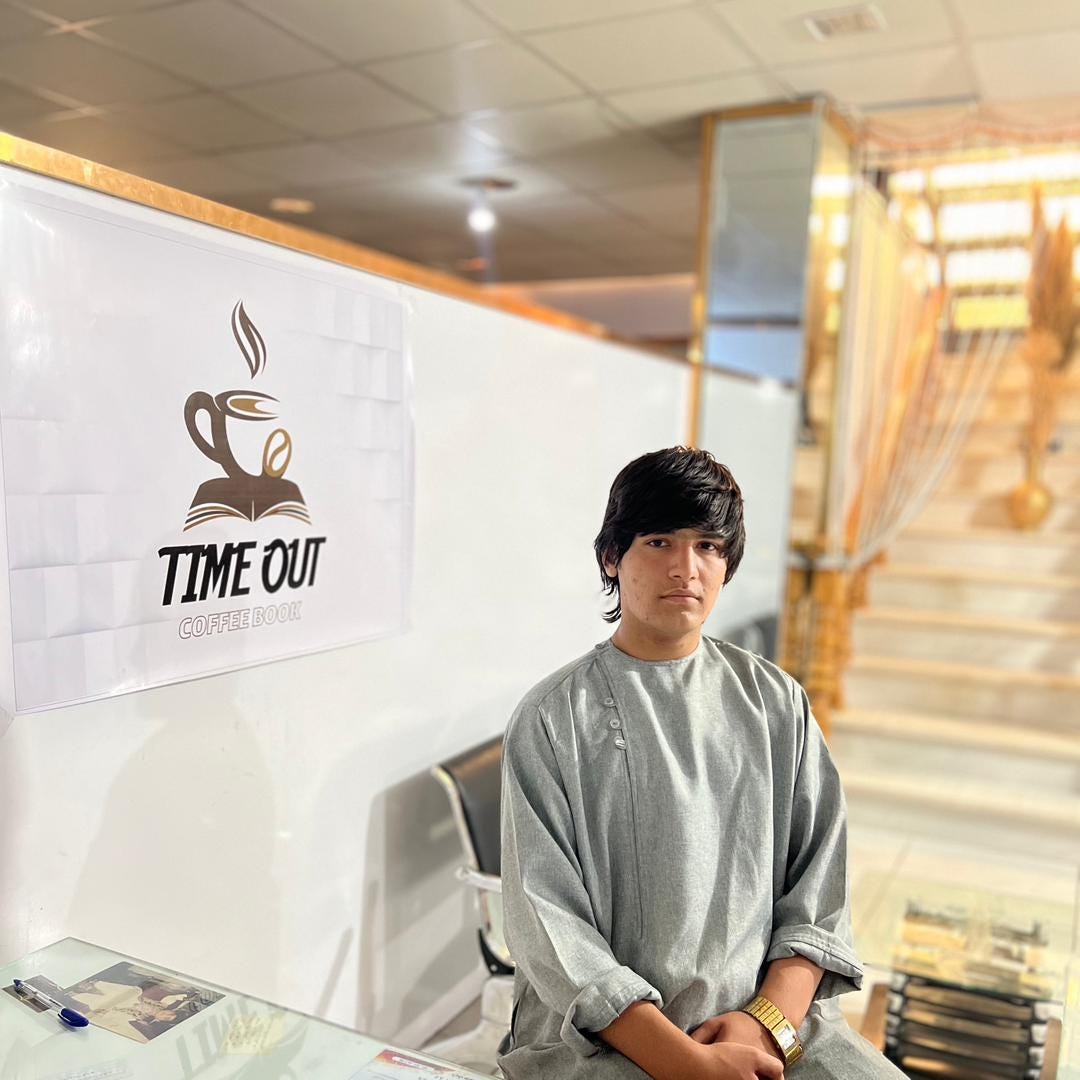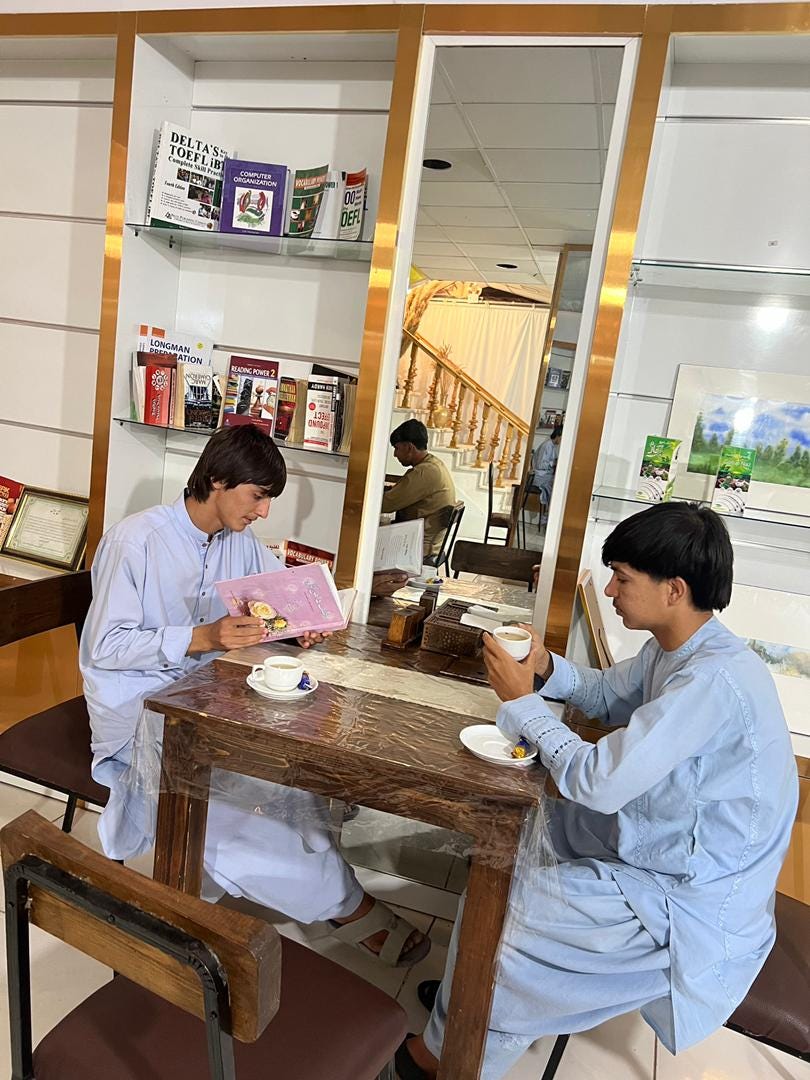Books and Brews in Kabul
Shahin Soliman Khil’s Café Book Timeout fosters community through coffee and books
A feeling of calm settles over Shahin Soliman Khil when he picks up a book. For the 19-year-old, reading is a way to escape reality and lose himself in another world. That’s why he has placed books at the heart of his new business venture—to share and celebrate the power of reading at a time when access to knowledge and education are under threat in Afghanistan.
With an Innovation Hub grant from Ideas Beyond Borders, Khil has crafted a unique business model, Café Book Timeout. This venture aims to blend the rich café culture of Afghanistan with the country’s deep-rooted history of reading. While both cafes and bookshops are ubiquitous in the larger Afghan cities, particularly Kabul, the fusion of the two is a rare sight. Khil saw an opportunity to offer a fresh twist on the latest trend of coffee shops, creating a space that is both a haven for book lovers and a hub for social interaction.
“Afghanistan has a tea culture, but in recent years, coffeehouses have sprung up across the country… With the booming cafe industry, young people and cultural activists in Afghanistan are now looking for new and modern spaces to meet and socialize,” Khil says. This is what he provides at Café Book Timeout, where customers can enjoy their favorite brew, order food, browse books, socialize, and participate in cultural events.
“The emergence of coffee culture in Afghanistan can be interpreted as a sign of the spread of global culture in the country…. These changes increase social and cultural diversity,” he adds.
Since the Taliban seized power, there has been an increased emphasis on religious literature in Afghan bookshops, but Khil is determined to cover a range of genres and subjects in the café library. “With the passage of time and the reopening of the cultural space, interest in other genres has increased, and libraries and bookstores must meet this need,” he says.
Books of philosophy, history, and science line the shelves, alongside novels and volumes of poetry. Self-help and motivational books are also popular in Afghanistan, as are tales of local literature and Afghan folklore. Khil hopes to attract a varied clientele by catering to different tastes and attracting a diverse community of readers, writers, and creatives to advance reading culture in Afghanistan. “It offers a real place to meet real people outside the virtual world of Facebook or Myspace,” he says.
Through conversations over coffee, fresh juice, and snacks, Café Book Timeout aims to foster a sense of community. Whether it's helping customers find the perfect title, guiding them to a quiet corner for a peaceful read, or hosting events to support local authors, the café is a catalyst for cultural engagement. “By providing services such as searching for rare books and connecting with authors and cultural campaigners, we help create an active community of readers and cultural activists,” Khil says, underscoring the café's role in promoting a vibrant reading culture in Afghanistan.
At present, Khil splits his time between university studies and the café, but already the business is making a profit. He attributes this to a successful fusion of modern and traditional values and the appeal of reading, particularly at a time of upheaval and uncertainty in Afghanistan. “Whenever I read a book, I enter another world and distance myself. It gives me a sense of relaxation and escape from daily stress and increases my knowledge and deep understanding of various subjects,” says Khil. “It is a human experience that acts as a window to another world and improves the quality of my life.”
This article was written by Olivia Cuthbert.






I greatly respect his courage. I hope he stays alive.